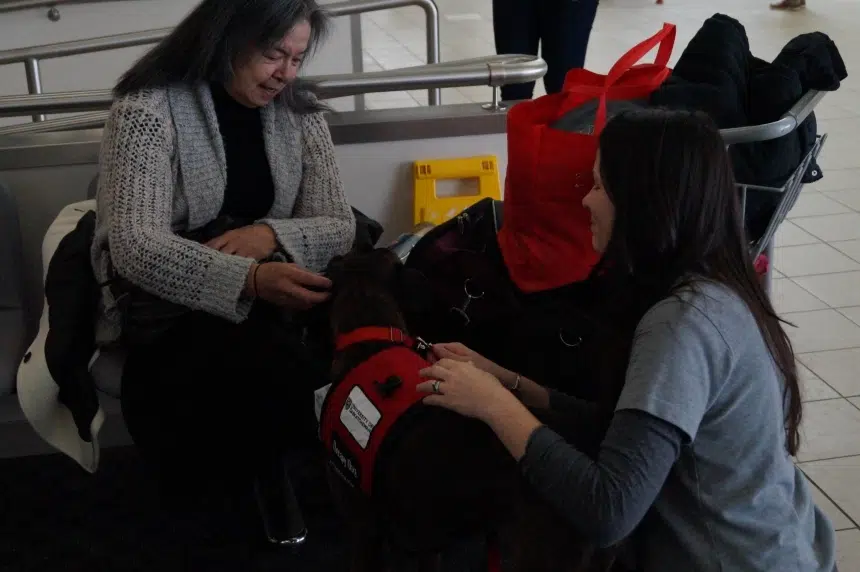Results from a pilot research project run by the University of Saskatchewan and St. John’s Ambulance showed a stark improvement in people’s attitudes, levels of happiness, and compliance with addictions counselling.
Research chair Dr. Colleen Dell said over a an eight-month period her team brought in therapy dogs from St. John’s Ambulance to spend 15 minute sessions with 161 individuals receiving addictions treatment at three centres in Saskatchewan.
“St. John’s has two goals, one is to provide support and the other is to provide love … We found consistently with all three sites that’s what people were getting when they sat with the dogs. They’re getting what they find as love and what they define as support,” Dell said.
Counsellors at those treatment centres said the greater sense of emotional support received by patients led to better compliance with treatment. They’re now making a case to havetherapy dogs as part of addiction treatment centres across the country.
“Staff strongly agreed that clients showed more positive affect after visiting with a therapy dog, and staff agree that there was increased client compliance after the visit, and want to explore options for offering therapy dogs during night shifts when settling and managing behaviours with clients when they are more challenging,” she said.
Dell added therapy dogs also help forge a bond between the patient and the counsellor.
“When you add the dog into the mix, (patients) have this sense of trust and energy that they bring into that relationship with the counsellor, and it makes it happen that much quicker when the dog is involved,” Dell said.
The science behind this, Dell said, is the physiological effects that came from people spending time with therapy dogs.
“The dogs provide a sense of (comfort) dogs don’t judge and we know the stigma that comes with addiction. But dogs don’t care,” Dell said. “Physiological effects include lowered heart rate, good feelings, dopamine and all those things are increasing as the interaction is going on.”
Of the 161 individuals where the dog therapy was tested, 75 per cent of patients said they felt loved when the dogs were with them.







